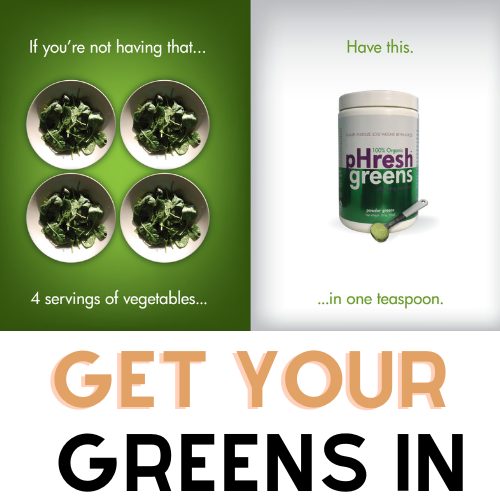Snacking gets a bad rap. Many think that they shouldn’t eat between meals. However, if done properly, snacking may help curb appetite, promote weight loss, and contribute to some much needed nutrients.
Eating smaller, healthy meals throughout the day helps maintain normal blood sugar levels. It also promotes a steady stream of energy throughout the day without experiencing a crash. Snacking may also help reduce cravings towards unhealthy foods rich in empty calories and low in health boosting nutrients.
Have you ever wondered 'Are chickpeas alkaline?' Yes they are and below you will find a recipe for a delicious alkaline snack made with chickpeas.
Snacking Done Right
Spreading your calories out over the course of five to six small meals per day is preferred by many experts. It’s easier on the digestive system and may speed up metabolism. However, for many, it’s not convenient to eat six times a day. In some cases it’s not even possible. Finding the right snack is important.
The following is a breakdown of how to spread out your meals, starting with breakfast, which kick starts your metabolism and ensures you will be ready to eat every three hours.
- 7 AM: Breakfast
- 10 AM: Snack #1
- 1 PM: Lunch
- 4 PM: Snack #2
- 7 PM: Dinner
Alkaline Snacking
Snacks are a great way to get some alkaline foods in your diet, especially if you have been slipping with your main meals. Chickpeas are alkaline and chickpeas (or garbanzo beans) are also high in minerals that contribute to alkalinity (1) such as magnesium and potassium and taste great when baked in coconut oil. Cinnamon adds a hint of sweetness for a delicious tasting alkaline snack that can be taken anywhere. Find the recipe below.
Roasted Cinnamon Chickpeas Recipe
- 1 carton of already in water organic chickpeas
- 2 tablespoons of cinnamon powder
- 2 table spoons of organic coconut oil
Directions
Melt the coconut oil. Add to the bowl of rinsed chickpeas. Add cinnamon and mix. Roast mixture in a baking tray prelined with parchment paper (non stick) until slightly crispy on the outside. (Approximately 30 minutes at 180 degrees centigrade.)
Why Chickpeas?
Chickpeas are considered one of the world’s healthiest foods (2). Predominantly found in the Mediterranean diet, chickpeas are alkaline and provide digestive support. They also help you feel full.
Chickpeas are legumes that contain a special kind of fibre (3). Insoluble fibre remains undigested all the way to the large intestine, where they metabolize bacteria in the colon and produce large amounts of short chain fatty acids. These fatty acids fuel the cells that line the intestinal wall.
Nutrients found in chickpeas (4) include molybdenum, a trace mineral found in animal products, manganese, copper, folate, phosphorus, iron and zinc. They also have a unique supply of antioxidants, such as vitamin C, vitamin E, and beta-carotene, which bind to free radicals and reduce disease and inflammation. One cup of chickpeas contains 85 percent of the daily recommended intake of manganese, which is found inside most cells. After consuming for one month, chickpeas can help reduce cholesterol and triglyceride levels.
The fiber and protein in chickpeas are responsible for regulation of blood sugar levels. Therefore, chickpeas also stabilize the flow of nutrients in the blood. Serving sizes as small as ½ cup of chickpeas is enough to balance glucose levels in the blood and support insulin.
Sprouted Chickpeas
For an extra health boost and easier digestion, try using sprouted chickpeas in the above recipe. Sprouting is a method of growing certain types of grains and legumes so that they contain optimal nutrients. Sprouting means that the plant is still considered alive when consumed. Sprouting immensely increases vitamins A and C content.
Sprouting begins with soaking the seeds or legumes in water. Certain enzymes prevent the seed from germinating, or beginning to grow, are eliminated during the soaking process. Once the inhibiting enzymes are gone, the plant is free to consume food and grow. This process activates phytase, which releases many nutrients in the plant, such as phosphorus, calcium, and iron.
Sprouting also decreases glycemic load in food and any possible inflammation factors.
One serving of sprouted chickpeas (5) contains 105 milligrams of calcium, 115 milligrams of magnesium, 366 milligrams of phosphorus, 875 milligrams of potassium, 557 micromilligrams of folate and 67 international units of vitamin A. It also contains trace amounts of iron, sodium, vitamin C, thiamin, niacin, vitamin B-6, and vitamin K.
When mixed with coconut oil (as in the recipe above), chickpeas are a powerhouse snack that can be used to fight disease, inflammation, and improve digestive health. Coconut oil (6) is anti-inflammatory, antibacterial, and antimicrobial, meaning that it can fight off infections and the spread of bacteria. Cinnamon aids in blood circulation and improves sugar levels. Together, these three ingredients give you an alkalizing snack that fights disease, energizes, and can be eaten virtually anywhere. Use them in your next snack option rotation to feel energized, light and healthy.
Article updated 10.2.24
Sources:
1. Health. Jillian Kubala, RD. 2024. 11 Alkaline Foods to Try. https://www.health.com/alkaline-foods-8717917
2. Mayo Clinic Health System. 2023. Check out chickpeas for Year-Round Healthy Eating. https://www.mayoclinichealthsystem.org/hometown-health/speaking-of-health/chickpeas-for-healthy-eating
3. Wallace TC, Murray R, Zelman KM. The Nutritional Value and Health Benefits of Chickpeas and Hummus. Nutrients. 2016 Nov 29;8(12):766. doi: 10.3390/nu8120766. PMID: 27916819; PMCID: PMC5188421.
https://pmc.ncbi.nlm.nih.gov/articles/PMC5188421/
4. Begum N, Khan QU, Liu LG, Li W, Liu D, Haq IU. Nutritional composition, health benefits and bio-active compounds of chickpea (Cicer arietinum L.). Front Nutr. 2023 Sep 28;10:1218468. doi: 10.3389/fnut.2023.1218468. PMID: 37854353; PMCID: PMC10580981.
https://pmc.ncbi.nlm.nih.gov/articles/PMC10580981/
5. Week&. Serena Styles. 2018. Nutrition of Sprouted Chickpeas.
https://www.weekand.com/healthy-living/article/nutrition-sprouted-chickpeas-18019481.php
6. Healthline. 2024. Top 10 Evidence-based Health Benefits of Coconut Oil.
https://www.healthline.com/nutrition/top-10-evidence-based-health-benefits-of-coconut-oil




























Leave a comment